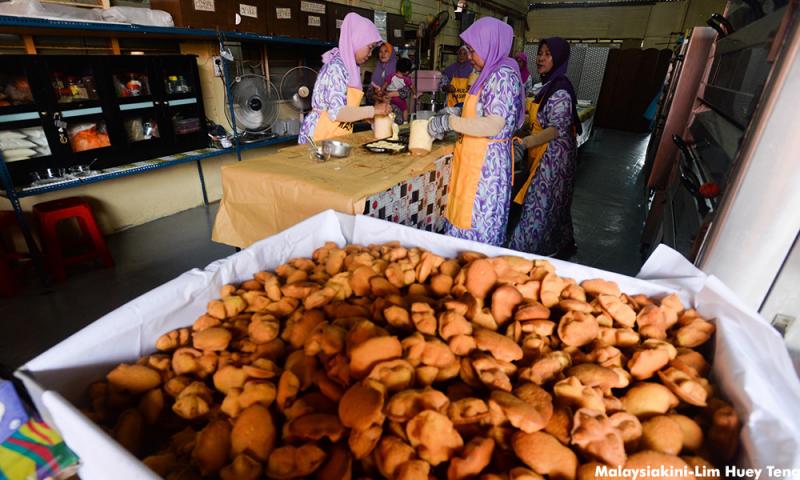COMMENT | Small and medium enterprises are like the goose which lays eggs. These eggs are used by them not only for their sustenance and growth but also for almost everybody in the economy. Now, if they have a problem laying eggs, they will self-destruct in a matter of a few weeks or at most one month. With their destruction, there’ll be a domino effect where they’ll bring the whole economy to its knees in a matter of a few months.
That is the brutal truth of the workings of the modern economy. Another brutal truth: They need to be rescued, and rescued fast enough. A third brutal truth: The magnitude of the rescue cannot be in peanuts amount; it has to be a huge and staggering amount.
The SMEs play an important and crucial, pivotal role in the development and growth of the Malaysian economy. They constitute about 98.5% or nearly one million of all business establishments. They had provided 66.2% of total employment in 2018.
Here are more hard and brutal facts about the contribution of SMEs to the nation:
- Their contribution to GDP is projected to expand at a moderate pace of 5.8% in 2019 (6.2% in 2018).
- In 2018, the total exports of SMEs were 17.3% and this is expected to increase in 2019.
- In the services sector, the contribution of the tourism sector where there is a preponderance of SMEs is very significant – in 2019, there were 28.1 million tourist arrivals, generating RM 92.2 billion in tourist receipts.
- In term of supply chain and business linkages, 68.1% of SMEs are direct suppliers of large foreign firms in Malaysia.
- Out of the SMEs which are indirect suppliers, 21.6% supplied through an intermediary which is a Malaysian SME, 16.4% supplied through an intermediary which is another large foreign firm in Malaysia, 12.9% supplied through an intermediary which is a foreign SME in Malaysia, and another 12.1% supplied through an intermediary, which is a large Malaysian firm.
While the current stimulus announced by Prime Minister Muhyiddin Yassin to help the country cope with Covid-19 pandemic is very comprehensive in that it doesn’t leave everyone behind, the focus on the SMEs clearly requires more depth in terms of their survival not only during the pandemic, but especially in the aftermath of the pandemic.
Whether by design or not or whether this is meant to gather more feedback from the SME for future stimulus, the lack of knowledge about what’s the government next step for the SMEs is very disconcerting to them. The SMEs themselves admitted that the current stimulus is very good in addressing the demand side of their problem, but it leaves much to be desired in terms of the supply side.
And if their concern for the supply side is not addressed urgently, it will certainly spell an economic death for most SMEs because they had already faced the multiple whammies facing the world economy before even the Covid-19 crisis reared its ugly head.
But there is a saving grace.
According to Harvard professor Karen Mills who was a former Small Business Administrator in the Obama administration, unlike the global economic recession of 2008 which also impacted acutely the SMEs and in which banks, in general, had a liquidity problem, in the case of the economic fallout today brought about by the Covid-19 whammy, banks are in a good position now in terms of liquidity that can be used to help the SMEs tide over this difficult and trying time.
Under the Prihatin stimulus package, the banks are doing this through Bank Negara’s directives such as giving moratorium on loans and offering Covid-19 special relief funds (SRF) for SMEs, while the government is offering a RM50 billion loan guarantee facilities to all SMEs and wage subsidy to all employers.

This is a good start but still not enough. If there is Covid-19 but no movement control order, perhaps that could be sufficient for a start. The MCO, although very important, is a game-changer. It makes the SMEs a paymaster for many Malaysians but without having the means to do anything to earn their revenues. What buffer they have in terms of cash savings, will be gone by the time the MCO is lifted.
So, the first order of business is to compensate across the board, the loss in revenue that they experienced during the MCO so as to put them back in the same position as pre-MCO.
From there, when the MCO is lifted, the focus will be in assisting the SMEs with their cashflow problem. The moratorium on loans helps to alleviate this problem in some ways.
More importantly, the requirement and conditions for obtaining funds from the SRF need to be tweaked to make it flexible enough for SMEs to apply. This would among others require:
- Waive any CCRIS/CTOS concerns from January 2020 to March 2020 due to economic slowdown.
- Reduce two years of audited accounts requirement to only one year.
- Require banks to change funding criteria of "Must be our current customer" to "Must be a current customer of a recognised financial institution".
- Simplify documents for application and, if need be, include a director guarantee on the disbursed loan for risk.
- A 10-business day turnaround from application to disbursal.
- Waive the profitability requirement for high growth SMEs with proven cash flow.
Next, the bank guarantee facilities should be modified as follows:
- The loan guarantee facilities will be distributed with a ratio of 70% for small businesses with not more than 250 employees, and 30% for the medium-sized businesses with more than 250 employees.
- The loan amount for this guarantee is for RM100,000 to RM2 million for the small businesses, and RM10 million to RM25 million for the medium-sized businesses.
- Fees or charges for the application should be discounted or waived.
- Interest-free soft loans should be targeted at start-ups, small enterprises or businesses that are less than five years old, while a standby soft loan facility worth RM25 billion should be made available from September onwards or earlier as the case may be if the SMEs are still in dire strait.
Meanwhile, for the non-SMEs company, Mills advised is that at this critical time, they could play a useful role such as paying their bills especially to their suppliers, rents and utilities in time. This will provide the SMEs with further assistance.
While our main concerns are public health and the welfare of the rakyat, it is also vital for the government to increase and enhance the measures that had been announced in Prihatin to save companies from bankruptcy as well as help them to recover quickly once the pandemic is over.
JAMARI MOHTAR is director, media & communications at Emir Research, a think- tank focused on strategic policy recommendations based on rigorous research.
The views expressed here are those of the author/contributor and do not necessarily represent the views of Malaysiakini.





